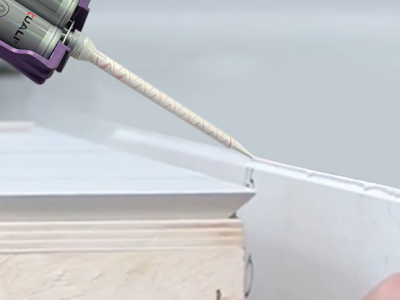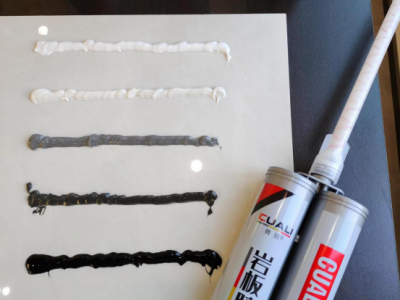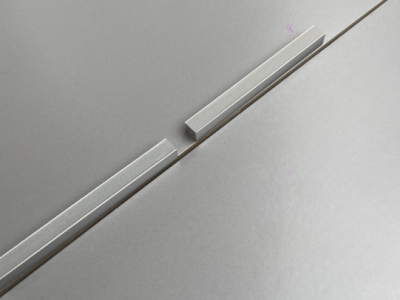When it comes to tiling projects, the grout you choose can make or break the durability, aesthetics, and longevity of your installation. As a leading brand in building chemical solutions, CUALI specializes in high-performance products designed to meet the demands of modern construction. In this comprehensive guide, we’ll dive deep into the differences between epoxy grout, cement grout, and urethane grout, focusing on their performance, ideal applications, and cost implications. By the end, you’ll understand why epoxy grout stands out as the superior choice for many scenarios—and how CUALI’s expertise can elevate your next project.
Understanding Grout: The Backbone of Tile Installations
Grout is a filler material used to seal gaps between tiles, preventing moisture infiltration, stabilizing the structure, and enhancing visual appeal. However, not all grouts are created equally. The three most common types are:
1. Epoxy Grout: A premium, two-part mixture of epoxy resins and hardeners.
2. Cement Grout: A traditional blend of cement, sand, and water.
3. Urethane Grout: A hybrid option combining urethane polymers with cement or epoxy.
Below, we’ll compare these grouts across critical categories to help you make an informed decision.
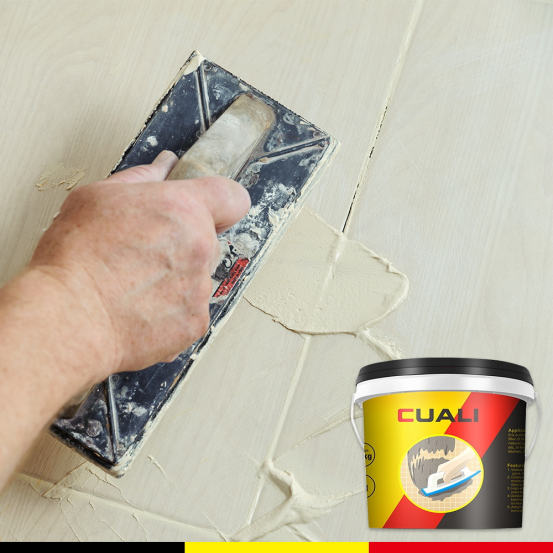
Performance Comparison: Strength, Durability, and Maintenance
1. Epoxy Grout: The Gold Standard
Epoxy grout is renowned for its unmatched durability and resistance to harsh conditions. Here’s why it outperforms other grout types:
Stain Resistance: Unlike porous cement grout, epoxy grout is non-porous, making it impervious to stains from oils, acids, or colored liquids. This makes it ideal for kitchens, laboratories, and commercial spaces.
Strength: Epoxy grout boasts exceptional compressive strength, reducing the risk of cracking under heavy loads.
Chemical Resistance: It withstands exposure to harsh chemicals, a key advantage in industrial settings or areas cleaned with strong detergents.
Longevity: With minimal maintenance, epoxy grout can last decades without discoloration or degradation.
CUALI Pro Tip: Our epoxy grout is fortified with advanced polymers for enhanced flexibility, ensuring it adapts to minor substrate movements without cracking.
2. Cement Grout: The Budget-Friendly Option
Cement grout is the most affordable and widely used option, but it has significant limitations:
Porosity: Cement grout absorbs water and stains easily, requiring frequent sealing.
Durability: Prone to cracking in high-traffic areas or environments with temperature fluctuations.
Maintenance: Regular resealing is necessary to prevent mold and mildew growth, especially in wet areas.
While suitable for low-budget projects or walls with minimal moisture exposure, cement grout lacks the resilience of epoxy grout.
3. Urethane Grout: A Middle Ground
Urethane grout offers some benefits of epoxy grout but falls short in critical areas:
Flexibility: More flexible than cement grout, reducing crack risk in dynamic environments.
Stain Resistance: Better than cement grout but less robust than epoxy grout.
Ease of Use: Easier to install than epoxy grout, making it popular among DIYers.
However, urethane grout lacks the chemical resistance and long-term durability of epoxy grout, limiting its use in demanding settings.
Application Scenarios: Where Each Grout Excels
Epoxy Grout: Ideal for High-Stress Environments
Thanks to its robust properties, epoxy grout is the go-to choice for:
Commercial Kitchens: Resists grease, heat, and frequent cleaning.
Bathrooms and Wet Areas: Prevents water damage and mold growth.
Industrial Facilities: Withstands chemicals, heavy machinery, and thermal shifts.
Outdoor Installations: UV-resistant epoxy grout (like CUALI’s formulations) won’t fade or degrade under sunlight.
Case Study: A swimming pool renovated its tile gap grouting with CUALI’s hydrogenated epoxy grout to meet UV resistance standards and reduce yellowing.
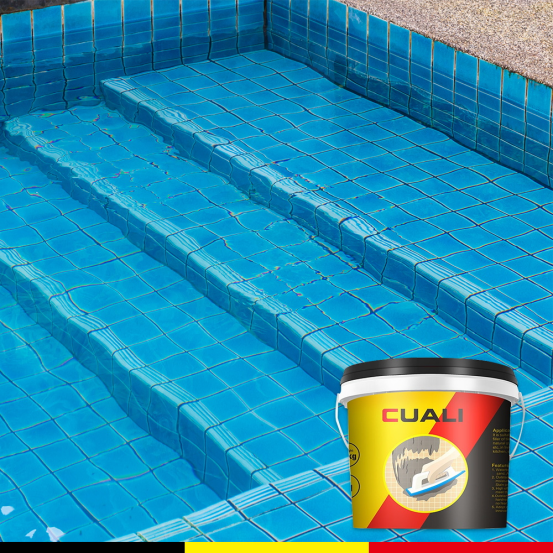
Cement Grout: Best for Low-Risk Projects
Cement grout works well in:
Residential Walls: Dry areas like living rooms or bedrooms.
Temporary Installations: Short-term projects where cost is a priority.
Decorative Use: Available in diverse colors for aesthetic flexibility.
Avoid using cement grout in showers, pools, or floors with heavy foot traffic.
Urethane Grout: Versatile but Limited
Urethane grout suits:
Residential Floors: Where minor flexibility is needed.
Light Commercial Use: Retail spaces with moderate foot traffic.
DIY Projects: Easier installation for non-professionals.
It’s not recommended for harsh chemical environments or extreme temperatures.
Cost Analysis: Upfront vs. Long-Term Value
Epoxy Grout: Higher Initial Cost, Lower Lifetime Expense
Material Cost: 2–3x more expensive than cement grout.
Installation: Requires skilled labor due to its quick curing time.
ROI: Eliminates resealing costs and extends tile lifespan, offering long-term savings.
Example: A restaurant owner opts for epoxy grout despite the higher upfront cost. Over 10 years, they save $2,000 in maintenance compared to cement grout.
Cement Grout: Cheap Initially, Costly Over Time
Material Cost: Most affordable option.
Maintenance: Annual resealing adds up—costing 50–100% more over a decade.
Replacement: Likely to require repairs or replacement within 5–7 years.
Urethane Grout: Moderate Investment
Material Cost: 1.5x higher than cement grout.
Durability: Lasts longer than cement grout but may still degrade in harsh conditions.
Side-by-Side Comparison Table
Feature | Epoxy Grout | Cement Grout | Urethane Grout |
Durability | Exceptional | Moderate | Good |
Stain Resistance | Non-porous | Porous (needs sealing) | Semi-resistant |
Chemical Resistance | Excellent | Poor | Moderate |
Flexibility | High | Low | High |
Installation Difficulty | Professional needed | DIY-friendly | DIY-friendly |
Cost (per sq. ft.) | 5–5–10 | 1–1–3 | 3–3–6 |
Lifespan | 20+ years | 5–10 years | 10–15 years |
Why Choose CUALI Epoxy Grout?
At CUALI, we engineer our epoxy grout to exceed industry standards. Here’s what sets us apart:
1. Advanced Formulation: Our epoxy grout resists cracking, fading, and chemical damage, even in extreme conditions.
2. Color Consistency: Unlike cement grout, CUALI’s epoxy grout retains its vibrant color without efflorescence.
3. Eco-Friendly Options: Low-VOC formulas ensure safety for indoor air quality.
4. Technical Support: From selection to installation, our team provides end-to-end guidance.
FAQs About Epoxy Grout
Q: Is epoxy grout worth the extra cost?
A: Absolutely. Its longevity and low maintenance offset the initial investment, especially in high-traffic areas.
Q: Can I use epoxy grout for outdoor projects?
A: Yes! CUALI’s UV-stable epoxy grout is perfect for patios, pool decks, and facades.
Q: How does epoxy grout handle movement?
A: Its flexibility accommodates minor substrate shifts, preventing cracks.
Conclusion: Epoxy Grout Reigns Supreme
While cement and urethane grouts have their niches, epoxy grout emerges as the clear winner for projects demanding durability, hygiene, and minimal upkeep. Whether you’re renovating a hospital, designing a luxury bathroom, or installing a commercial kitchen floor, CUALI’s epoxy grout delivers unmatched performance and aesthetic appeal.
Ready to elevate your tiling project? Explore CUALI’s range of epoxy grout solutions today and experience the difference quality makes.



